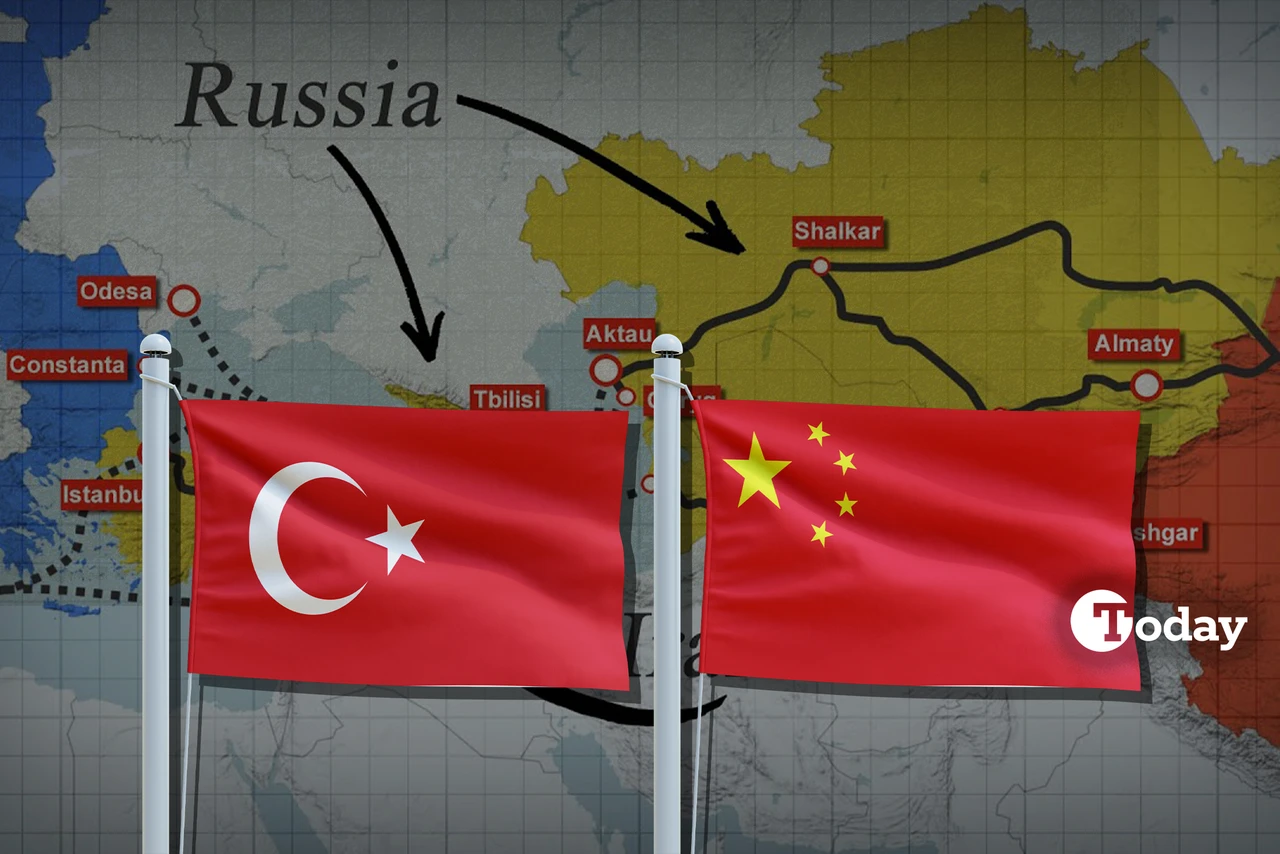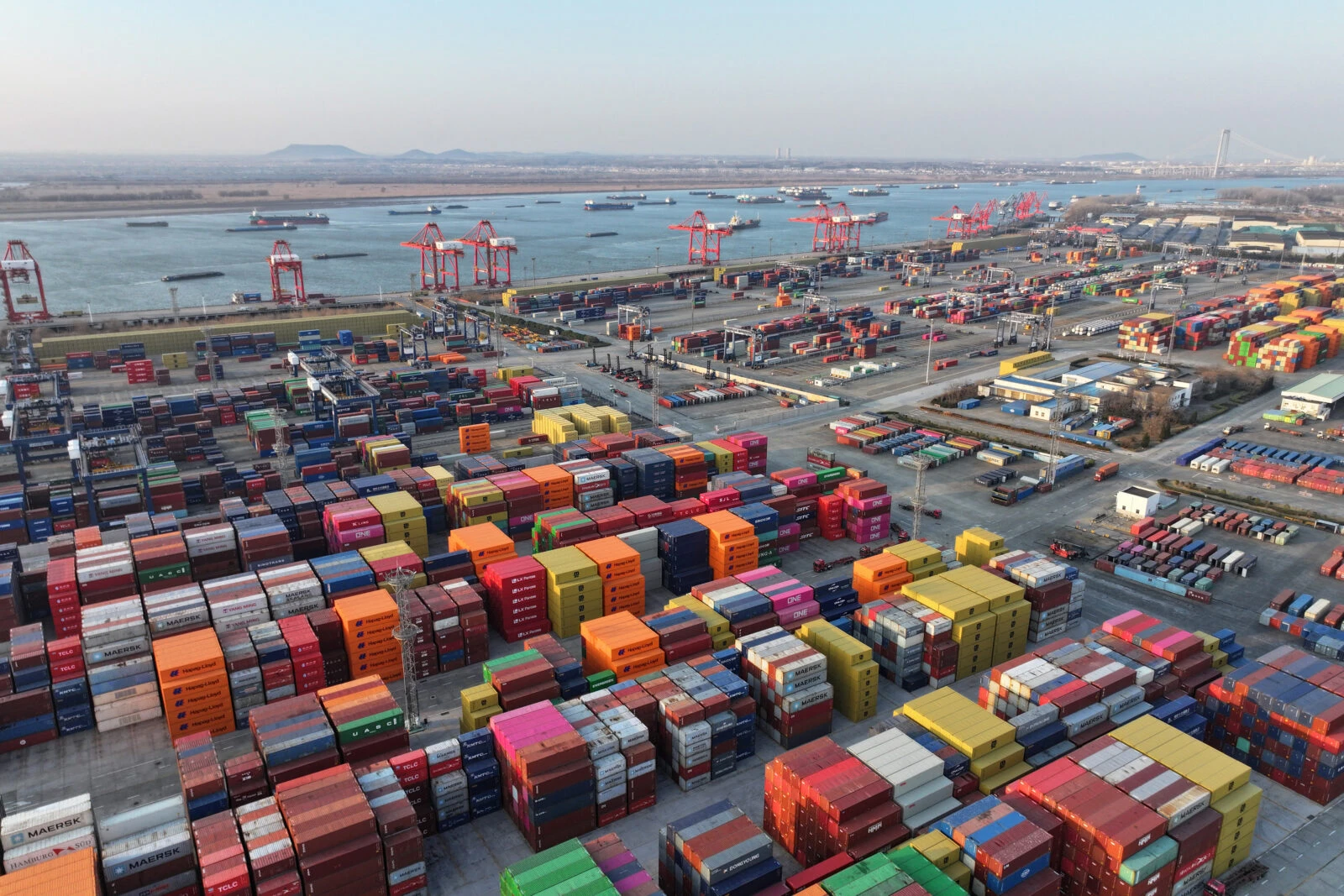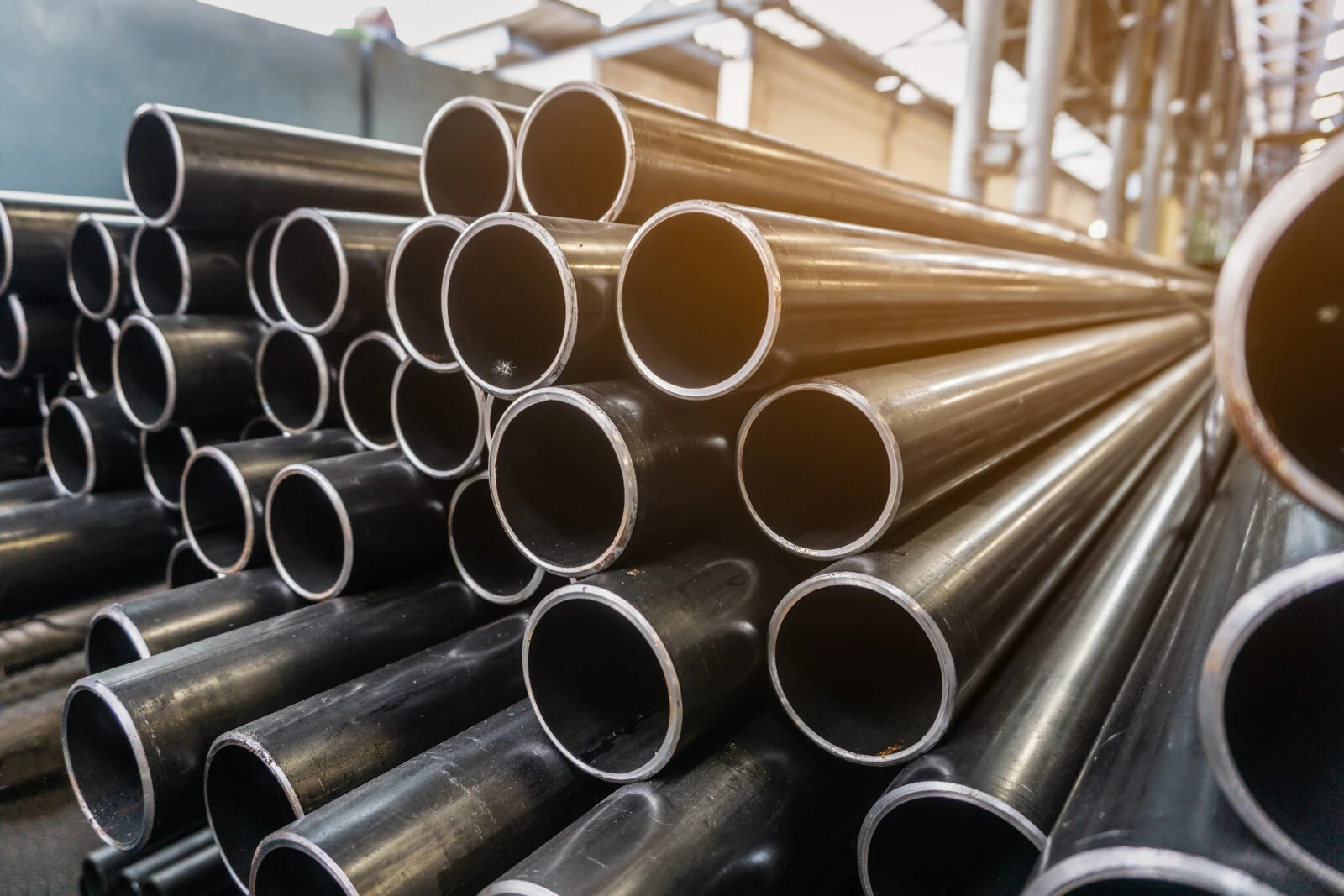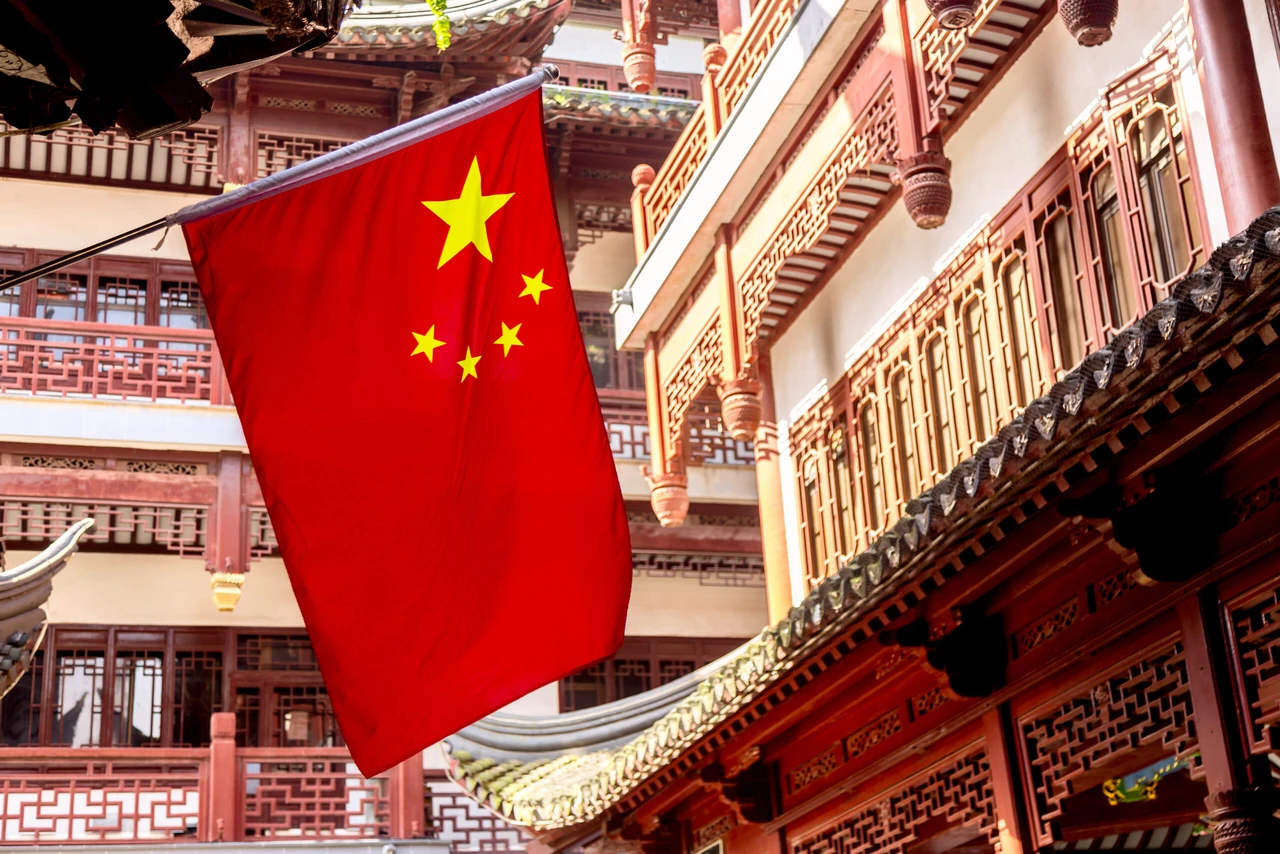Turkish manufacturers sound alarm over widening trade gap with China
 Türkiye's $45 billion trade deficit with China highlights a growing economic dependency, prompting calls for export diversification and strategic investments to restore balance. (Collage prepared by Mehmet Akbas)
Türkiye's $45 billion trade deficit with China highlights a growing economic dependency, prompting calls for export diversification and strategic investments to restore balance. (Collage prepared by Mehmet Akbas)
Turkish manufacturers warn that expanding Chinese imports pose a growing threat to the domestic market, as Türkiye’s imports from China doubled from $22 billion in 2020 to over $42 billion last year, while local producers continue to lose ground in emerging export markets.
The industry leaders point out that they are losing competitiveness due to a mix of domestic currency policy and China’s aggressive trade expansion; thus, while Chinese exports to regions like the Middle East, Central Asia, and Africa grow rapidly, Türkiye’s export growth in these same markets is slowing.
Meanwhile, Chinese goods are entering the Turkish market at lower prices, disrupting sectors ranging from machinery to consumer products. Speaking to business-focused ekonomim.com, industry leaders say Chinese state support and trade restrictions on foreign firms have created unfair conditions.

Turkish producers losing ground to China
At the same time, Türkiye continues to face a widening trade imbalance with China, most of which is driven by machinery imports. In 2023, Türkiye imported $11 billion worth of machinery from China, accounting for one-fourth of the country’s total machinery imports and making up the bulk of the sector’s $16 billion trade deficit—three-quarters of which stems from trade with China.
“We are able to export high-value machines to Europe, yet we can barely access the Chinese market, which remains largely closed to us—while our own remains wide open,” said Kutlu Karavelioglu, president of the Machinery Exporters’ Association. He called for urgent policy reforms to establish a more balanced and reciprocal trade relationship with Beijing.
Imports of household goods, footwear, and electronics from China have been increasing significantly in recent years, making it increasingly challenging for locally produced items to remain competitive—even within Türkiye’s own domestic market.
“The domestic market is no longer price-competitive,” said Burak Onder, founding president of the Turkish Housewares Exporters Association (EVSID). “Unless we take concrete steps to support our producers, Türkiye risks losing its long-standing position as a key manufacturing hub for the wider region stretching from Eastern Europe to Central Asia.”
The situation is particularly alarming in the footwear industry, where imports from China surged by 110% in January alone. According to industry estimates, the trade deficit in this sector could reach as much as $1 billion by the end of the year.
Although the government introduced additional customs tariffs at the end of December, Berke Icten, president of the Turkish Footwear Industrialists Association, warned that these short-term measures will be insufficient unless they are paired with strategic, long-term investments in domestic production infrastructure.

Pressure is also mounting in the automotive sector, where even major manufacturers have started sourcing parts from China in order to cut costs. The Automotive Supply Manufacturers Association (TAYSAD) notes that as profit margins shrink, companies are turning to more affordable, foreign-made components.

“Even main assemblers are now importing parts from East Asia. Meanwhile, medium-sized firms are becoming increasingly active in bringing in semi-finished and low-cost materials from China,” TAYSAD representatives said, warning that this trend could result in a structural shift within Türkiye’s supply chains.
The steel industry is experiencing similar challenges. Veysel Yayan, secretary-general of the Turkish Steel Producers Association, highlighted that while global steel prices are rising, Chinese steel prices have dropped an additional 4.5%, leading to a growing wave of cheap imports. As a result, nearly half of Türkiye’s steel consumption is now met through imports—far exceeding the EU average of 23%–24%.

Despite the Trade Ministry’s recent safeguard and anti-dumping measures, Yayan expressed concern that regulatory loopholes are still being exploited, undermining domestic production.



